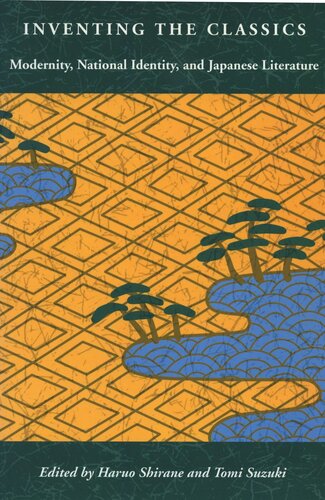

Most ebook files are in PDF format, so you can easily read them using various software such as Foxit Reader or directly on the Google Chrome browser.
Some ebook files are released by publishers in other formats such as .awz, .mobi, .epub, .fb2, etc. You may need to install specific software to read these formats on mobile/PC, such as Calibre.
Please read the tutorial at this link: https://ebookbell.com/faq
We offer FREE conversion to the popular formats you request; however, this may take some time. Therefore, right after payment, please email us, and we will try to provide the service as quickly as possible.
For some exceptional file formats or broken links (if any), please refrain from opening any disputes. Instead, email us first, and we will try to assist within a maximum of 6 hours.
EbookBell Team

4.1
40 reviewsToday the term "Japanese literary classics" implies such texts as the Man'yoshu, Kojiki, Tale of Genji, Tale of the Heike, Noh drama, and the works of Saikaku, Chikamatsu, and Basho, which are considered the wellspring and embodiment of Japanese tradition and culture. Most of these texts, however, did not become "classics" until the end of the nineteenth century, in a process closely related to the emergence of Japan as a modern nation-state and to the radical reconfiguration of notions of literature and learning under Western influence. As in Europe and elsewhere, the construction of a national literature and language with a putative ancient lineage was critical to the creation of a distinct nation-state. This book addresses the issue of national identity and the ways in which modern European disciplinary notions of "literature" and genres played a major role in the modern canonization process. These "classics" did not have inherent, unchanging value; instead, their value was produced and reproduced by various institutions and individuals in relation to socio-economic power. How then were these texts elevated and used? What kinds of values were given to them? How was this process related to larger social, political, and religious configurations? This book, which looks in depth at each of the major "classics," explores these questions in a broad historical context, from the medieval period, when multiple canons competed with each other, through the early modern and modern periods. Throughout, the essays focus on the roles of schools, commentators, and socio-religious institutions, and on issues of gender. The result is a new view of the transformation of the Japanese canon and its intimate connection with the issue of national and cultural identity.